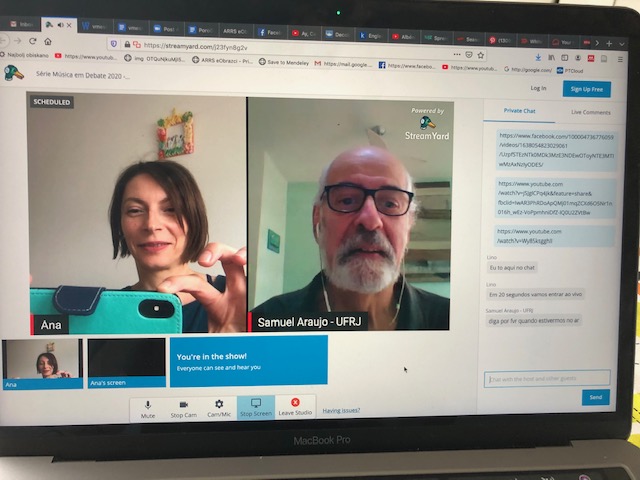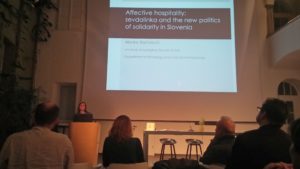Panel: Feeling Powerful – Sonics, Politics, and Affective Regimes
The physical aspects of music and sound, or “vibrational practice,” in Nina Sun Eidsheim’s terms (2015), rely on physical experience contextualized and eliciting an affective response. By revisiting definitions of “power” (Walser 1993), in which power comes from feelings of controlling sound, this panel suggests how shared physical experience may be differently felt and contextualized in the realms of affect theory (Hofman 2015, Massumi 2016) and sound studies (Cusick 2006, Daughtry 2015, Tausig 2019) with an emphasis on the transformational affective potential of sonic embodiment (Eidsheim 2015, Hofman 2020, Cox 2016).
Each case study investigates the varied ways in which the vibrational-acoustic qualities of voice create types of social engagement that exist on heightened emotive terrain. Across each case study, we link cultural responses to “affective regimes,” defined broadly as the often overlapping and sometimes contradictory logics of capital, technological development, urban space, and governance that inform the sounded dimensions of contemporary social life (Mankekar and Gupta 2016; Navaro 2019). Considering affective regimes as a means of analysis enables us to foreground “the corporeal body whose bodily processes are being reshaped by the logics of capital and technology, in short, not just the laboring body but the feeling body” (Mankekar and Gupta 2016, 38). Imagining a scaffold of affective regimes guided by spatial acoustic and embodied sonic practices, case studies in varied contexts – extremist politics in Metal music; affective curation in professional choral performance; and the use of found acoustics in chant-driven protest – show how sound can overwhelm, subvert, and channel power through controlling emotional guidelines and embodied experience. These papers suggest an expanded definition of “power” that affords new ways to theorize physical experience as connected to political kineticism via physicality and affective drive. Moreover, this scholarship explores the tenuous distinctions between beingpowerful and feeling powerful in consideration of the overlapping and sometimes contradictory logics of capital, technological development, urban space, and governance that inform the sounded dimensions of contemporary social life.
Participants:
Eugenia Siegel Conte, University of California, Santa Barbara
Max Z. Jack, Humboldt-Universität zu Berlin
Jillian Fischer, University of California, Santa Barbara
Discussant:
Ana Hofman, Research Centre of Slovenian Academy of Sciences and Arts



